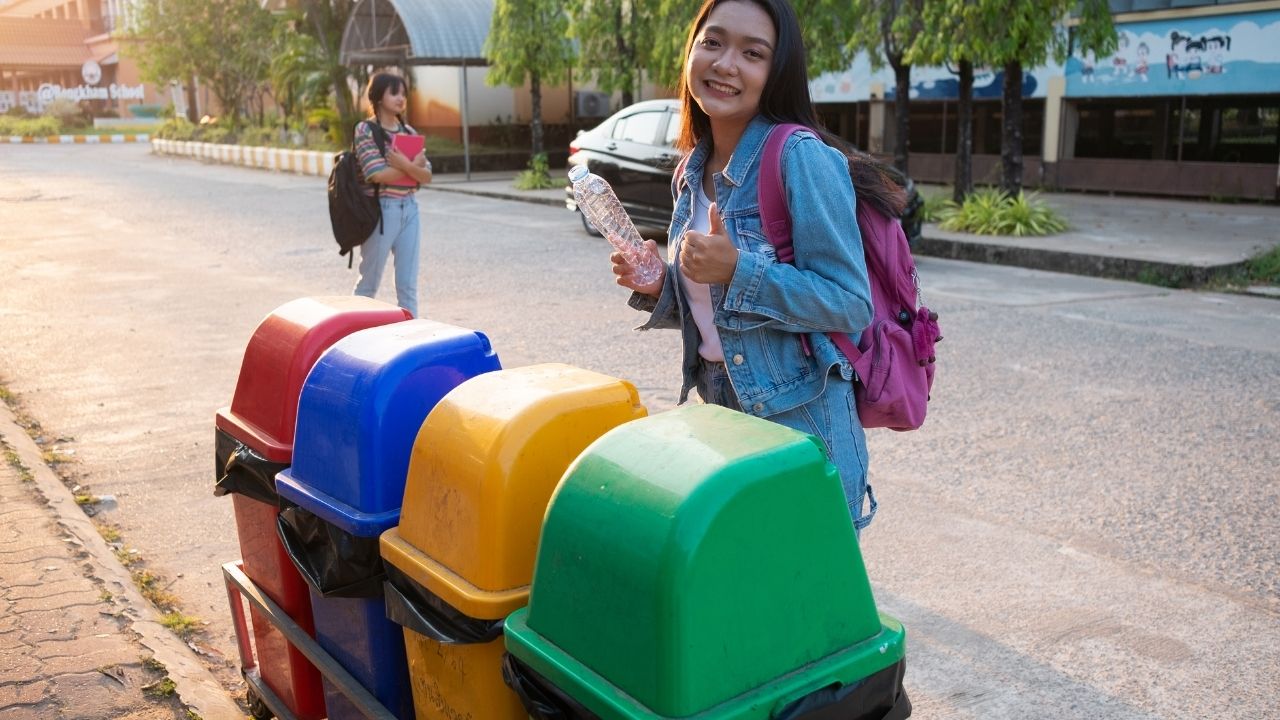
In today's rapidly evolving world, the issue of waste management has become increasingly crucial. As we strive to create a more sustainable future, understanding and implementing effective waste management strategies is paramount. In this comprehensive article, we will explore various approaches to tackle the challenge of waste reduction, recycling, composting, incineration, landfill management, and resource recovery.
Waste Reduction: The First Step
Waste reduction is the cornerstone of effective waste management. By minimizing the amount of waste generated, we can significantly reduce the strain on our environment and resources. This can be achieved through various methods, such as:
- Promoting a culture of mindful consumption: Encouraging individuals and businesses to adopt a more conscious approach to their purchasing decisions, focusing on buying only what they need and opting for products with minimal packaging.
- Implementing extended producer responsibility (EPR) policies: Requiring manufacturers to take responsibility for the entire lifecycle of their products, including the disposal and recycling of their goods.
- Encouraging the use of reusable and recyclable materials: Providing incentives and education to consumers and businesses to choose products and packaging that can be reused or easily recycled.
Recycling: Closing the Loop
Recycling is a crucial component of effective waste management. By diverting materials from landfills and transforming them into new products, recycling helps conserve natural resources and reduce the environmental impact of waste. Successful recycling programs often include:
- Comprehensive collection and sorting systems: Establishing efficient collection methods, such as curbside pickup or drop-off centers, and implementing effective sorting processes to ensure materials are properly categorized.
- Robust processing infrastructure: Investing in state-of-the-art recycling facilities that can efficiently process a wide range of materials, from paper and plastics to metals and electronics.
- Education and public engagement: Raising awareness among the public about the importance of recycling and providing clear guidelines on what can and cannot be recycled.
Composting: Turning Organic Waste into Valuable Resources
Composting is a natural process that transforms organic waste, such as food scraps and yard trimmings, into nutrient-rich soil amendments. This approach not only diverts organic waste from landfills but also creates a valuable resource for gardeners, farmers, and landscapers. Effective composting strategies may include:
- Establishing community-based composting programs: Providing accessible composting facilities, either centralized or decentralized, where residents and businesses can deposit their organic waste.
- Encouraging home composting: Educating individuals on the benefits of home composting and providing resources, such as compost bins and instructional guides, to support this practice.
- Integrating composting into municipal waste management systems: Incorporating composting as a standard component of a city or town's waste management infrastructure, ensuring organic waste is properly diverted and processed.
Incineration and Landfill Management: Responsible Disposal
While waste reduction, recycling, and composting should be the primary focus, there will always be a certain amount of waste that requires responsible disposal. In such cases, incineration and landfill management play important roles:
- Incineration with energy recovery: Burning waste in a controlled environment to generate heat or electricity, reducing the volume of waste while recovering energy in the process.
- Improved landfill design and management: Implementing modern landfill technologies, such as liners, leachate collection systems, and methane capture, to minimize environmental impact and maximize resource recovery.
Resource Recovery: Extracting Value from Waste
The concept of resource recovery involves extracting valuable materials or energy from waste, transforming it into a useful resource. This approach not only reduces the amount of waste sent to landfills or incinerators but also generates economic and environmental benefits. Strategies for resource recovery include:
- Extracting valuable materials: Identifying and recovering recyclable materials, such as metals, plastics, and glass, from the waste stream for further processing and reuse.
- Generating energy from waste: Utilizing technologies like anaerobic digestion or pyrolysis to convert organic waste into biofuels, biogas, or other forms of renewable energy.
- Upcycling and repurposing: Finding innovative ways to transform waste into new products, extending the life of materials and reducing the demand for virgin resources.
Collaborative Efforts: Achieving Sustainable Waste Management
Effective waste management strategies require a collaborative effort involving all stakeholders, including governments, businesses, and individual citizens. By working together, we can:
- Develop comprehensive waste management policies: Enacting legislation and regulations that provide a framework for sustainable waste management practices.
- Foster public-private partnerships: Encouraging collaboration between the public and private sectors to develop innovative solutions and share best practices.
- Engage the community: Empowering individuals and local communities to participate in waste reduction, recycling, and composting initiatives.
By implementing a comprehensive approach to waste management, encompassing waste reduction, recycling, composting, responsible disposal, and resource recovery, we can pave the way for a more sustainable future. Through collective action and a commitment to innovation, we can overcome the challenges of waste management and create a cleaner, greener world for generations to come.
 Family Craft ProjectsHome ImprovementCooking and BakingReuse and RecycleDIY GiftsEco-Friendly ProjectsDIY Home SolutionsSeasonal ActivitiesFun and GamesLearn TogetherPrivacy PolicyTerms And Conditions
Family Craft ProjectsHome ImprovementCooking and BakingReuse and RecycleDIY GiftsEco-Friendly ProjectsDIY Home SolutionsSeasonal ActivitiesFun and GamesLearn TogetherPrivacy PolicyTerms And Conditions
